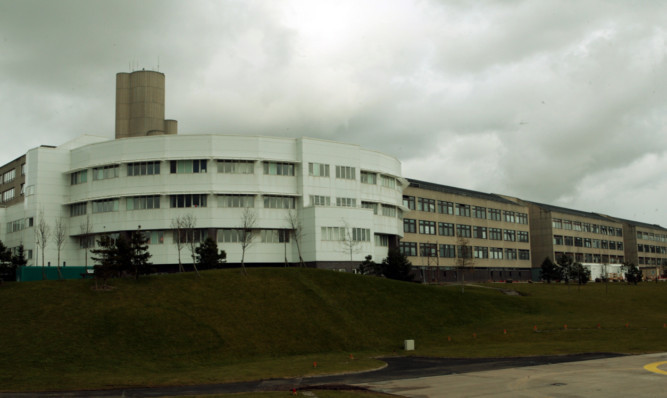Half of the letters sent by Ninewells Hospital about outpatients’ treatment were addressed to the wrong GPs.
The shocking finding in the survey of more than 500 referrals, which also covered Perth Royal Infirmary, has been slammed by the area’s GPs, who say patient care is being compromised.
The problem with outpatient communications has worsened, despite pledges by NHS Tayside to improve the situation. The Tayside Local Medical Committee says the health authority “must do better”.
The committee, which represents all Tayside GPs, has spoken out after seeing the accuracy of electronic and surface mail from the hospitals falling to 65%.
They are communications resulting from their referral of outpatients to Ninewells or PRI for more specialist care.
After seeing the outpatients the hospitals write back to the GPs to explain what they have done and recommend further action they want the GPs to take. The communications have been going to the correct surgery but in many cases have been addressed to the wrong GP within that practice.
The Tayside GPs committee say the problem is not minor as vital time can be lost redirecting letters and emails to the correct colleagues. This takes GPs away from looking after their own patients and delays the delivery of follow-up care to the outpatients who have been referred.
Dr Andrew Buist said the committee first raised the issue with NHS Tayside in 2008 and in 2011 they decided to audit replies to GP referrals from one Tayside practice over a six-month period.
There were more than 500 referrals and an overall accuracy of 75% 83% from PRI and 56% from Ninewells.
The committee called for an improvement and the exercise was repeated last year. The results were worse, with the accuracy dropping to 68% 72% at PRI and 57% at Ninewells.
NHS Tayside said the problem would be fixed by linking referrals to a new piece of software. After allowing the new system to bed in, the committee repeated the audit again.
The results were even worse, with the accuracy dropping to 65% 72% from PRI and 50% from Ninewells.
PRI has performed better than Ninewells and some departments at both appear to be efficient. These include opthalmology, plastics and dermatology.
Departments at Ninewells that have not done well are urology, ENT and orthopaedics and gastroenterology has done poorly at both.
Dr Buist said: “The three audits have involved something like 1,600 referrals and the situation is getting worse, and this is a significant concern for outpatient care.
“It can take two minutes from the point of opening a referral letter, realising it is not for you and re-routing it to the correct GP. Multiplying that by the number of wrong referrals you receive in a day can add up to a significant amount of time that could be better spent looking after your own patients.
“The letters contain details of follow-up treatment which may not have happened because the letters have gone to the wrong doctors, and the care of patients has been compromised.”
NHS Tayside said communication between GP and hospital has improved greatly with the introduction of electronic referrals, discharges and clinic.
“Recognising that patients are now more often registered with the practices, rather than individual doctors, NHS Tayside implemented some changes within the electronic systems to be able to record both the patient’s practice or doctor who they are registered with and also the doctor who has referred them for a hospital appointment,” said a spokeswoman.
“We, therefore, intend to provide further education and training to staff to ensure the letters are addressed to the referring doctor rather than the practice.”
